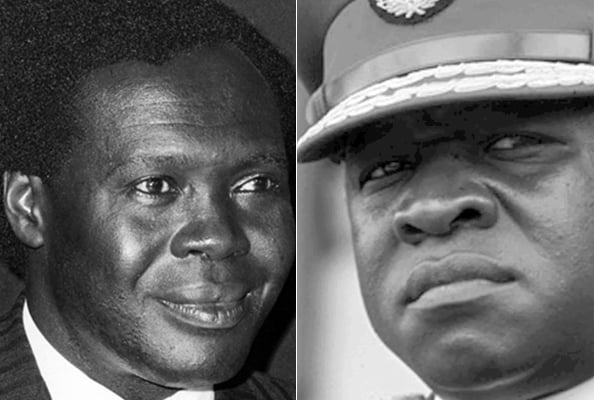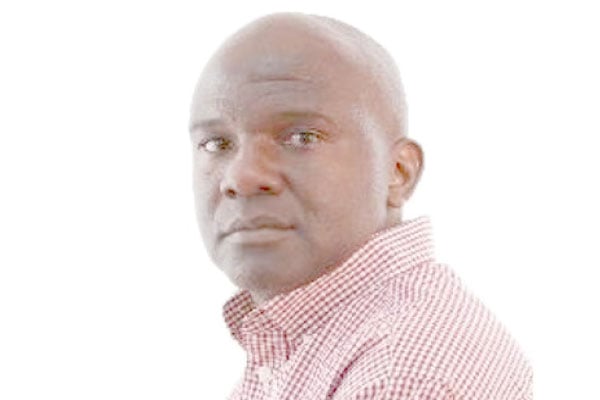Prime
Museveni: Kiwanuka shouldn't have worked with Amin

President Museveni during the fifth Benedicto Kiwanuka memorial lecture at the Judiciary headquarters in Kampala on September 21, 2022. PHOTO/MICHAEL KAKUMIRIZI
What you need to know:
- President Museveni says former Ugandan leader Amin was brutal and impossible to guide.
President Museveni has blamed the first Ugandan Chief Justice Benedicto Kiwanuka for accepting to work with Idi Amin despite his bad leadership.
“When Amin announced a coup, we met at the house of the late Yona Kanyomonzi in Bugolobi and we decided to fight him. We didn’t expect anything better from Idi Amin,” President Museveni said during the Benedicto Kiwanuka memorial lecture at the Judiciary headquarters in Kampala yesterday.
“He (Amin) was not the one who could understand anything. Even Milton Obote would kill civil servants and marginalise but he was not killing them directly. We had a different view that he (Kiwanuka) should not have joined Idi Amin,” he added.
Mr Museveni said he became unpopular in Ankole for his decision to fight Amin.
“The people there said Kaguta’s son had become a vagabond, how can he go and side with Obote?” he said.
Mr Museveni said while he was still a rebel, he developed ideological differences with his friends like Kibeedi Wanume, Dan Nabudere, and Edward Rugumayo, who said they could guide Amin if they worked with him.
“We said, it’s not possible to guide Amin. We had problems with Obote who was a literate but at least some of the issues we had with him were East African integration while Idi Amin could not understand anything,” he said.
Yesterday marked 50 years since Kiwanuka was seen alive after soldiers kidnapped him from his chambers on September 21, 1972 at the Judiciary headquarters. His body has never been found.
Kiwanuka fell out with Amin after he announced that he intended to meet all local magistrates to address problems of tardiness, drunkenness, lack of impartiality and delayed judgments.
He also promised to protect Ugandans against government abuse and it’s this commitment to justice that put him on collusion paths with Amin.
It is reported that the final act that cost him his life was his decision to hear a case of a British businessman Daniel Stewart, who had been arrested and detained without trial at a military barracks.
This was after he issued an order of habeas corpus, directing military authorities to produce the businessman before him.
ALSO READ: After Museveni, we’ll have ‘Musevenism’
Speaking at the commemoration, Chief Justice Alfonse Owiny-Dollo said they can only honour the legacy of Kiwanuka if they can serve justice to Ugandans.
“We owe it to Ben Kiwanuka to do all is within our individual and collective power, to further advance the cause of justice. I call upon all the people of Uganda, the government, the non-governmental agencies to join hands, so that together, we strive for the rule of law, access to justice and observance of human rights for all persons,” he said.
The president of the Uganda Law Society, Mr Bernard Oundo, decried the continued disregard of court orders by government agencies including the police.
“Courts are clothed with constitutional powers to dispense justice to all persons. Justice is delivered and communicated through court orders, which must be obeyed by all persons, institutions and authorities in the land at all times,”Mr Oundo said.
“However, some government institutions treat court orders as mere white papers with blank ink. They are accorded no respect and in some cases no attention at all, especially, security organs like police, intelligence agencies and departments like State House Anti-Corruption Unit, Health Monitoring Units among others. Police and law enforcement authorities must listen to the voice of the law (court pronouncements) and respect them,” he added.
But President Museveni in his response, said some groups of people refuse to implement court orders because they don’t agree with some of them as they affect many people.
He cited a case where a magistrate gives an order to evict more than 5,000 people from a parish and the Resident District Commissioner stops such a court order.
Mr Museveni said Justice minister Norbert Mao would help him harmonise some of those issues.
Mr Mao said as the president of Democratic Party, their wish is to have the remains of Kiwanuka found and given a decent burial.
Former Principal Judge Yorokamu Bamwine and the late Deputy Chief Justice Laetitia Kikonyongo were recognised for their excellent contribution to the Judiciary and received the Benedicto Kiwanuka award of the year.




